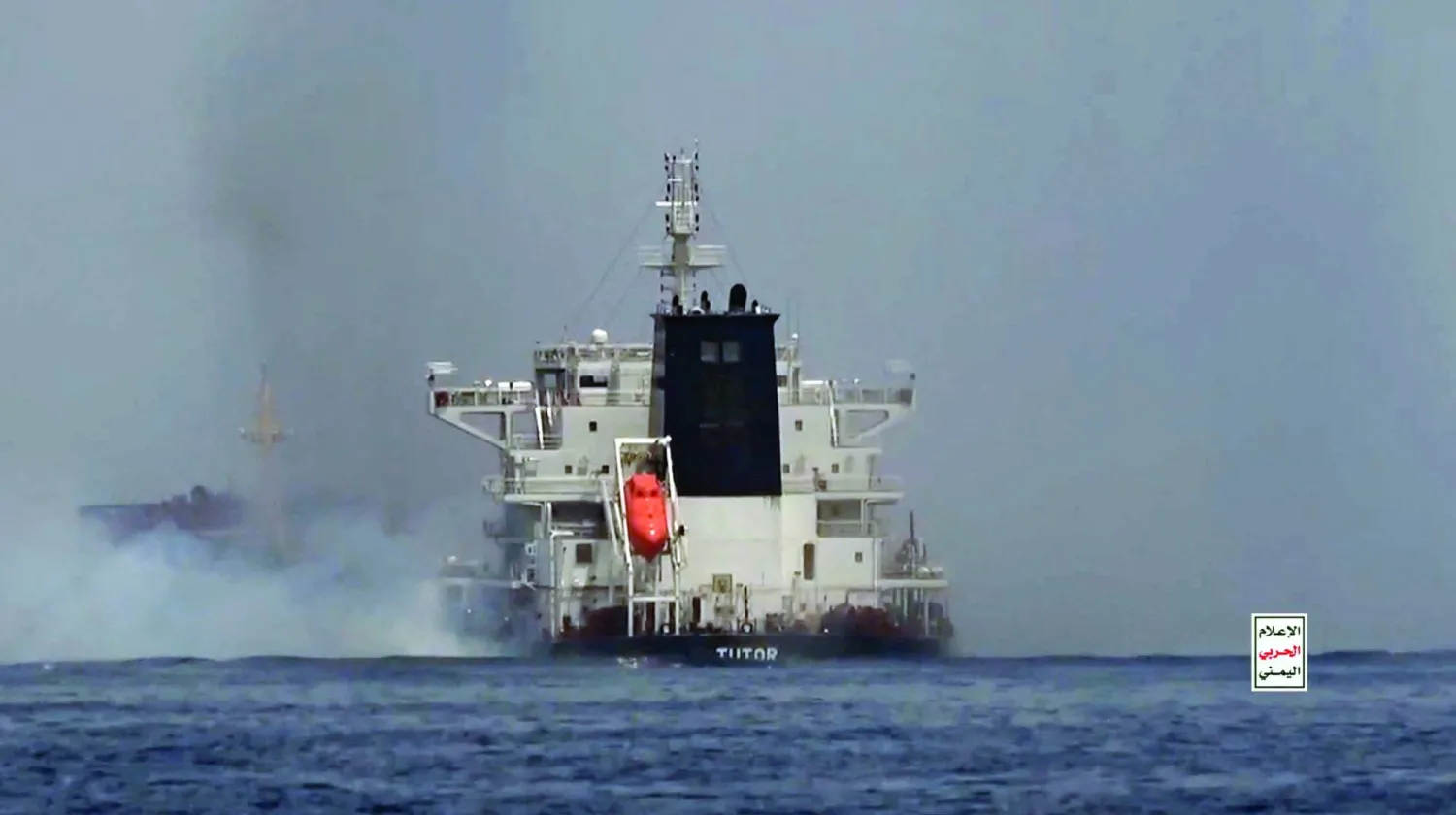The UN Security Council on Thursday approved a resolution demanding Yemen’s Houthi militias halt all attacks on ships and urged that the disruption to maritime security in a critical Middle East waterway be urgently addressed.
The resolution, which also extended the requirement that UN Secretary-General Antonio Guterres report monthly on the Houthi attacks in the Red Sea and the Gulf of Aden, was approved by a 12-0 vote, with Russia, China and Algeria abstaining.
Shipping has reduced drastically through the route crucial to Asian, Middle East and European markets in a campaign the Houthis say will continue as long as the war rages in the Gaza Strip.
The resolution condemns the Houthis’ continuing attacks, which the group say are aimed at ending the war in Gaza, now in its ninth month — emphasizing the need to address root causes, “including the conflicts contributing to regional tensions and the disruption to maritime security."
The Houthis have targeted more than 60 vessels in the waterway, firing missiles and drones. Four sailors have been killed, one vessel was seized and two others have been sunk in Houthi attacks since November.
The Houthis maintain they target ships linked to Israel, the United States or Britain. However, many of the vessels attacked have little or no connection to the Israel-Hamas war — including some bound for Iran.
Thursday's resolution, which was a follow-up resolution to one adopted Jan. 10 that condemned and demanded an immediate halt to Houthi attacks, “urges caution and restraint to avoid further escalation of the situation in the Red Sea and the broader region.”
Speaking on behalf of the United States and Japan, which sponsored the resolution, US deputy ambassador Robert Wood said after Thursday's vote that the Houthi attacks “threaten international peace and security” and that they are “a global challenge” that "necessitates a global solution."
"With this resolution the council once again sends a clear message to the Houthis: Cease these attacks immediately,” he said.
He stressed the need to deprive the Houthis of weapons, noting that the resolution reiterates that all countries are required to implement a 2015 UN arms embargo on Houthis and others undermining Yemen’s stability.
China’s deputy UN ambassador Geng Shuang said Beijing has repeatedly called on the Houthis to end their attacks on commercial ships but abstained as it did in January because some key elements in the resolution “could have negative consequences and lead to further escalation of regional tensions.”
An immediate and lasting cease-fire in Gaza “will help cool down the situation in Yemen and the Red Sea,” Geng said.
Security Council Demands Houthis Halt Attacks on Ships in Mideast Waters

Smoke rises after an explosion on a ship that Houthis say is an attack by them on Greek-owned MV Tutor in the Red Sea, dated June 12, 2024, in this screen grab obtained from a video. HOUTHI MEDIA CENTRE/Handout via REUTERS

Security Council Demands Houthis Halt Attacks on Ships in Mideast Waters

Smoke rises after an explosion on a ship that Houthis say is an attack by them on Greek-owned MV Tutor in the Red Sea, dated June 12, 2024, in this screen grab obtained from a video. HOUTHI MEDIA CENTRE/Handout via REUTERS
لم تشترك بعد
انشئ حساباً خاصاً بك لتحصل على أخبار مخصصة لك ولتتمتع بخاصية حفظ المقالات وتتلقى نشراتنا البريدية المتنوعة







